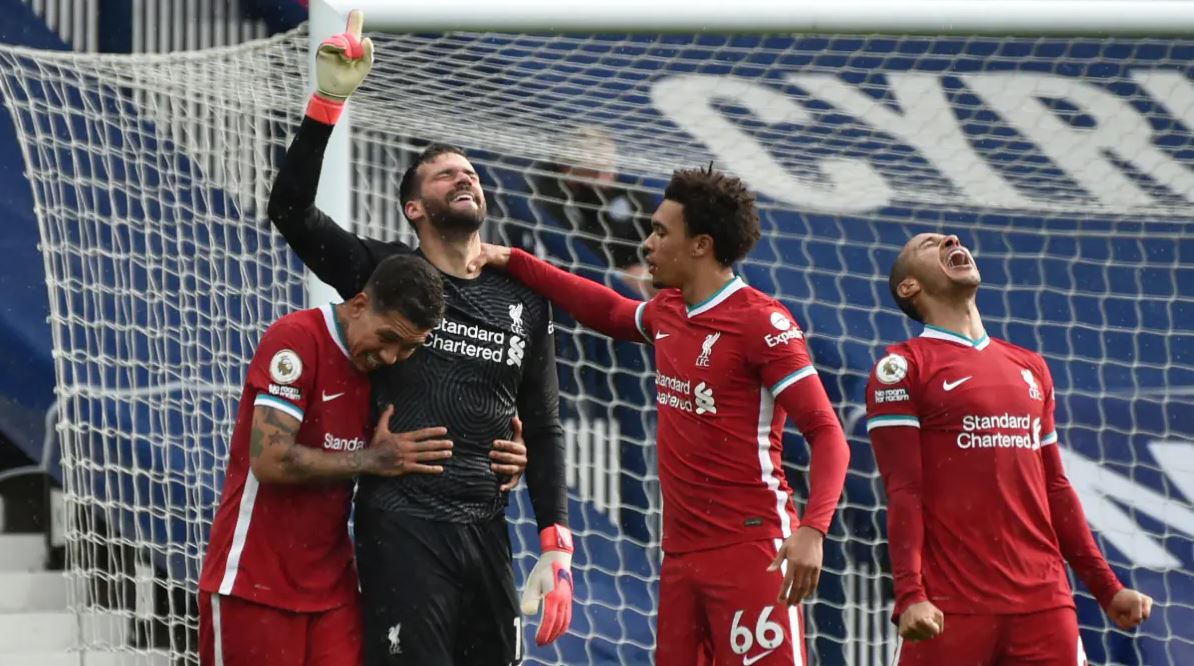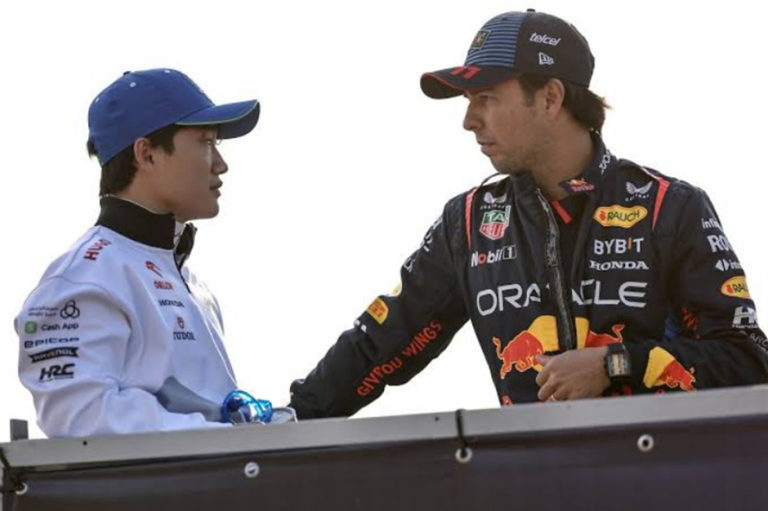No matter how sophisticated the game plan is, sometimes football matches are determined by moments of improvisation. Coaches may plan and give instructions, however, individual responses to particular play situations are often what differentiates the outcome. And of all the possible moments, the winning goal scored by a goalkeeper always has a special place.
The main task of the goalkeeper is to keep the goal. His position is at the very end of the field. If he scores instead – hits the ball at the other end of his place – on paper this is bizarre and contradictory. Anyone who scores a winner or a comeback that is locked away in the dying minutes is always special. If it is a gloved player who scores the final goal, he takes the match to an even more bizarre, magical and special climax level.
On 16 May, such a moment was created at The Hawthorns, the headquarters of West Bromwich Albion. Liverpool goalkeeper Alisson Becker scored the winner less than two minutes from the end. The Brazilian goalkeeper locked the crucial tripoin and kept the Reds’ hopes for the Champions League next season.
This moment is extremely rare. While goalkeeping goalscoring is nothing new in football – remember Rogerio Ceni and Jose Luis Chilavert – goalkeeper goals from open play situations are extremely rare. Ceni (131 goals) and Chilavert (67 goals) are prolific, but almost all of their goals have been scored via penalties or free kicks.
In the Premier League era, there have only been six goalkeeper goals, and four of them came from open play situations. Alisson is the sixth goalkeeper to score an EPL goal after Peter Schmeichel, Brad Friedel, Paul Robinson, Tim Howard and Asmir Begovic. Throughout Liverpool’s history, he became the first goalkeeper to score.
Of the six goals, two were scored following the chaos after the corner kick. Alisson is the only player to score a header. Meanwhile, the other three goals were shots from their own territory which ended in the opponent’s goal. If a team is left behind at the last minute of a decisive match, the goalkeeper often goes up when his team gets a free kick or corner. But rarely are the real goalscorers. The Premier League goalkeeper’s goal statistics show this. The absence of a goalkeeper who is a regular set-piece taker means that there are only six goalkeepers who have scored goals since 1992.
Despite advancing to the opponent’s penalty box, the goalkeeper’s probability of scoring a goal is still low. But why do goalkeepers insist on advancing at crucial moments? Absolute gambling or simply hopelessness? Tactically, the presence of a goalkeeper in the opponent’s penalty box during a corner kick or free kick situation actually gives an advantage. This is recognized by the football coach who recently fell victim to a goalkeeper attack, Steven Gerrard.
On April 26, Rangers were eliminated by St. Johnstone in the Scottish Cup quarter-finals. The Gers were eliminated on penalties. Previously, the two teams drew 1-1 to extra time. In the extra round of injury time, St. Johnstone scored a dramatic goal from a corner. Christopher Kane equalized thanks to an assist from goalkeeper Zander Clark. After the match, Gerrard admitted his team failed to respond to unimaginable situations. They did not consider that Zander would come forward to attack the set piece.
“That [the goalkeeper welcomes the corner] is difficult to anticipate. When will you face it? That is very rare and quite unique. And when it was done by someone 6.3 feet [192 cm], it was only natural that one of the big players had to go and look after Zander. And it turns out that the guard was finally handed over to the little players who had not been guarding anyone and were now being told to escort someone up to 6.3 feet tall, “Gerrard told The Scottish Sun.
Gerrard underlined how goalkeepers can mess up defensive plans from set pieces. In dealing with such situations, a team has a plan and finalizes it in a training session. The players also have their own duties, either guarding the players or zones such as the far post or near post. The presence of the goalkeeper, although not armed with a well-honed header and jumping technique, is very likely to mess up the defensive plan. The reason is, goalkeepers generally have a high posture to welcome the air ball.
This is what happened when the Rangers were beaten by St. Johnstone. At that time, the two central defenders of The Gers, Connor Goldson and Jack Simpson, had their respective escort duties. As a result, Zander was not guarded and took the bait without the hassle of a duel. Zander’s header then hits Kane to produce a goal.
If you look at the header goals scored by the goalkeeper, they generally welcome the ball in an unchecked position. Alisson was also not guarded when he scored a goal against West Brom. Liverpool FC have released the record of the goal with a perspective of all the cameras covering the incident in the stadium. The goal process can be seen in detail.
In this goal, Alisson was free to head the ball at the near post. The West Brom players seemed to have the task of escorting each other. Kyle Bartley and two other players actually guarded the near post. However, Bartley must escort Sadio Mane and two of his colleagues in carrying out zonal guarding duties.
Tandem Bartley, Semi Ajayi is in charge of escorting Nathaniel Phillips. He is the real executor of the ball in the near post zone. Ajayi fulfilled his duty, clung to Phillips who moved to greet the ball. However, the figure who then executed the ball was Alisson.
Here, the presence of the Brazilian goalkeeper has successfully exploited Sam Allardyce’s set-piece tactical gap. On paper, Darnell Furlong and his friends did nothing wrong; after all, they did their job as in training. However, the presence of additional players who were tall and happened to execute the pass very well made them lose.
After the match, Juergen Klopp admitted his team had never trained for this situation. According to him, the manager’s share in the goal was only one: not asking Alisson to cancel his intention to join the corner.
“I said to John Achterberg [goalkeeping coach] that when I went to the press conference I would say it worked because he did it four times a week! Unfortunately, that’s not true! “That [header technique] should come from his long-term memory when he was an outfield player as a child,” said Klopp.
“I’ve never seen him do something like this. I would be happy enough if he didn’t use his head too often and used both his hands. [It was] a perfect moment, “he continued.
Alisson executes the ball like a spearhead. The header is classy. Taking position, timing, and heading right technique. So, what if at that time the goalkeeper failed to head and the ball was captured by the opposing player? The worst case scenario for this is certainly a “ridiculous” goal against an empty net.
Universitario goalkeeper Jose Carvallo experienced this unfortunate incident in November 2014. When competing against Leon de Huanuco in the Peruvian League continued, Universitario was 1-0 behind until injury time. The goalkeeper stepped forward when his team got a corner in the dying minutes. Unfortunately, a corner failed and Leon de Huanuco managed to score on the counter-attack into an empty net.
However, an opposing player’s sweep does not mean that the attack has failed. If the team that is left behind manages to hold the ball and seize it in a dangerous area, turmoil can result. And the presence of a goalkeeper in a crisis always helps. The reason is, in such chaos, having additional players in the opponent’s penalty box gives the attacking team more options.
Goalkeeper goals from chaotic situations also occurred several times. This season, Sevilla goalkeeper Yassine Bounou did it on March 20. At that time, Los Nervionenses were 1-0 behind from Valladolid until injury time. They got a corner in the last minute.
Bounou, knowing that it was the last chance in the match, stepped forward to assist in the attack. This corner does not result in an immediate goal. At least, it took four passes and one block for Bounou to strike the ball in front of the goal. “It [scored a goal] gave off a beautiful feeling. The strikers are really lucky, ”said the goalkeeper from Morocco after the match.
Goals are a very rare achievement for goalkeepers. Situations that require a goalkeeper to come forward are extremely rare, being able to score goals from him is even rarer. So, it’s no wonder that goals scored by goalkeepers – especially those not from the spot or direct free kick – are so celebrated. Moments like this show the absurd face of football.
In closing this article, it’s worth looking back at one of the greatest goalkeeping goals of all time. This is also a goalkeeper goal from a corner situation, scored by Baroka FC (South African club) goalkeeper Oscarine Masuluke. Not a header like Alisson or a close shot like Bounou, Masuluke scored with an overhead kick. Yes, an overhead kick from near the edge of the penalty box.
ASL
















